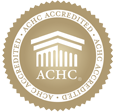What is the Coronavirus?
Coronavirus is a virus that attacks the respiratory tract and causes a flu-like illness. There are many different coronaviruses but the one we are going to focus on today is the 2019 novel coronavirus also known as SARS-CoV-2 or COVID-19. The abbreviated name (COVID-19) can be broken down into its individual parts; “CO” standing for Corona, “VI” standing for virus and “D” standing for disease. This new coronavirus was first identified in December of 2019 hence the “-19” and originated from Wuhan, China.
How does COVID-19 spread?
The coronavirus is a respiratory virus that is spread by droplets or through direct contact. The virus can be spread by people who have COVID-19 but are asymptomatic, meaning they have no symptoms.
What can you do to protect yourself?
Hand washing is one of the best ways to protect yourself from getting sick. Wash your hands with soap and water for at least 20 seconds often throughout the day especially after blowing your nose, coughing/sneezing, going to the bathroom and before eating or preparing food. If soap and water are not available, use an alcohol-based hand sanitizer. Another way to protect yourself and others is to stay home if you are sick. It is also important to cover your nose and mouth if you cough or sneeze. Wearing a mask that covers your nose and mouth in public settings when not around people that live in your household when social distancing is not attainable. Wearing a mask in public settings provides an extra layer of protection against respiratory droplets. Social distancing or staying at least six feet away from others is important since people can have no symptoms and still spread the virus.
What are the symptoms of COVID-19?
Symptoms may appear 2-14 days after an exposure to the virus
- Cough
- Fever or Chills
- Shortness of breath or difficulty breathing
- Muscle or body aches
- Sore throat
- New loss of taste or smell
- Diarrhea
- Headache
- New fatigue
- Nausea or vomiting
If you have trouble breathing, persistent pain or pressure in the chest, new confusion, inability to wake or stay awake or bluish lips or face, seek emergency medical care immediately.
How is COVID-19 diagnosed?
Diagnosis can be difficult because in some cases COVID-19 may appear similar to the flu or other respiratory illnesses. A laboratory test (nasal swab) is used to confirm the diagnosis of COVID-19.
If you test positive for COVID-19, stay home, take care of yourself by staying hydrated and getting plenty of rest. Stay in contact with your doctor and be sure to seek emergency medical attention if you have trouble breathing or emergency warning signs. Stay away from others as much as possible and tell your close contacts that they may have been exposed to COVID-19. An infected person can spread COVID-19 starting 48 hours or 2 days before they become symptomatic or test positive.
If you test negative for COVID-19, you are probably not infected at the time your sample was collected. However, this does not mean that you will not get sick. You could test negative if the sample was collected early in your infection and then test positive later in your infection. If you develop symptoms later, you might need to be re-tested to determine if you are infected with the virus.
How is COVID-19 treated?
As of now, there is no specific treatments for COVID-19. People who become sick with COVID-19 are treated with supportive measures to treat the symptoms.
What should I do if I have had close contact with someone who has been diagnosed with COVID-19?
The best thing to do if you have been in contact with someone diagnosed with COVID-19 is to stay home for 14 days. Be alert for symptoms associated with COVID -19 and stay away from others whenever possible until your quarantine period is complete.
What individuals are at an increased risk for severe illness if infected with COVID-19?
Severe illness means that a person with COVID-19 may require hospitalization, intensive care, or a ventilator to help them breathe.
- Older adults
- Anyone 65 years of age or older
- The greatest risk is among those aged 85 and older
- People of all ages with certain underlying medical conditions
- Cancer
- Chronic kidney disease
- Chronic lung diseases
- Chronic obstructive pulmonary disease (COPD)
- Cystic fibrosis
- Pulmonary fibrosis
- Dementia
- Down syndrome
- Heart conditions
- Heart failure
- Coronary artery disease
- Cardiomyopathies
- Pulmonary hypertension
- Immunocompromised (weakened immune system)
- Solid organ transplant
- Bone or blood transplant
- HIV
- Use of corticosteroids or other immune weakening drugs
- Liver Disease
- Moderate to severe asthma
- Obesity and severe obesity
- BMI >30kg/m2
- Sickle cell disease
- Smoking
- Type 2 diabetes mellitus
- Pregnant women
Is there anything I can do to decrease my risk of severe disease?
There are many ways to help strengthen your immune system. Read our blog on “Seven Ways to Help Strengthen your Immune System’ to give your immune system a boost.
References:
- Coronavirus (covid-19) frequently asked questions. (n.d.). Retrieved February 19, 2021, from https://www.cdc.gov/coronavirus/2019-ncov/faq.html
- Sauer, L. (n.d.). What is Coronavirus? Retrieved February 19, 2021, from https://www.hopkinsmedicine.org/health/conditions-and-diseases/coronavirus

